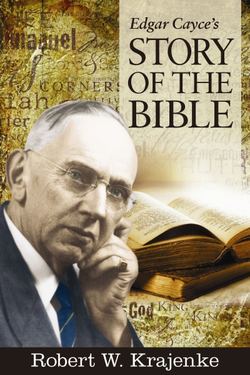Читать книгу Edgar Cayce's Story of the Bible - Robert W. Krajenke - Страница 48
На сайте Литреса книга снята с продажи.
Abraham, Isaac, and Jacob
ОглавлениеAccording to the Cayce readings, Melchizedek (Genesis 14) is the next appearance of the soul who had been Adam and Enoch—the soul who had chosen as his path of destiny to be the leader and savior of mankind, and later fulfilled it as Jesus, when he became the Christ.
In John 8:56-58, when the Jews were questioning Jesus, he responded, “Your father Abraham rejoiced to see my day; and he saw it and was glad.” Jesus also told them, “Truly, truly, I say to you, Before Abraham was, I am.”
If Jesus is harkening back to his experience as Melchizedek here, then Genesis 14 records, in a few brief lines, one of the most significant meetings of all mankind.
And Melchizedek brought out bread and wine; and he was the priest of the most high God.
And he blessed him, and said, “Blessed be Abram of the most high God, possessor of heaven and earth.
And blessed be the most high God, which hath delivered thine enemies into thy hand.” (Genesis 14:18–20)
Abram not only rejoiced to see the “day” of this high priest, but also paid tithes. Abram was able to recognize the Living God manifesting in Melchizedek. He had the same insight, apparently, that Peter did at a later date!
Jesus said to them, “Who do you say that I am?”
Simon Peter answered, saying, “You are the Christ, the Son of the Living God.” (Matthew 16:15-16)
With all the nations, after Babel, turning to gratification and power, it became necessary for a new nation to be raised. Abram is the father of this people, a new nation dedicated exclusively to being God’s People.
. . . or as in the priest of Salem in the days when the call came that a peculiar peoples would proclaim His name . . .
364-8
This nation was to be used for the renewing of the mind of man, restoring his memory through spiritual discernment.
. . . a peculiar people, set aside for a purpose—as a channel through which there might be the discerning of the spirit made manifest in flesh.
2879-1
Thinkest thou that the grain of corn has forgotten what manner of expression it has given? Think thou that any of the influences in nature that you see about you—the acorn, the oak, the elm, or the vine or anything—has forgotten . . . ? Only man forgets! And it is only in His mercy that such was brought about. For what was the first cause? Knowledge—knowledge! What then is that cut off in the beginnings of the Sons of God? Becoming entangled with the daughters of men, and the Daughters of God becoming entangled with the sons of men! As in Adam, they forgot what manner of men they were! Only as he lives, [as] he manifests that life that is the expression of the divine, may man begin to know who, where, what and when he was!
294-189
Peter and Abram share several features in common, and reflect a universal spiritual pattern. As a result of their spiritual development, both men had their names changed: Peter to Simon, and Abram to Abraham. Their spiritual perceptions established them as the first patriarchs, or fathers, of their “church.”
Peter’s realization of the Christ in Jesus established him (or the awareness itself) as the “rock” of the New Testament church.11 Perhaps Melchizedek bestowed a similar blessing on Abram. Abram’s awareness was the foundation upon which the Old Testament was built.
The discernment of the Spirit manifesting in the flesh is the base, or cornerstone, for this spiritual movement which began after Babel and the dividing of the nations, the foundation succeeding generations could return to and enlarge upon, building an ever-expanding body of souls attracted to each other for a common purpose.
. . . for as given of Old, no soul can say that Christ is come of God save the Holy Spirit convict him of that statement.
262-72
Just as Abram was able to see Melchizedek as the Son of a Living God, Melchizedek was able to recognize in Abram the elements of spirituality and worldliness that would establish him as the leader of this new movement. In the following Cayce puts forth a simple, far-reaching concept which in its application can be a working principle for all.
Nations were set up then in various portions of the land [after Babel], and . . . set about to seek their gratifications. Very few—yea, as ye will recall, it even became necessary that from one of these groups one individual, a man, be called. His ways were changed. His name was changed.
Did it take sin away from the man, or was it only using that within the individual heart and purpose and desire even then, as man throughout the periods of unfoldment put—in his interpretation—that of material success first?
3976-29
Abram’s desire for material success was a principal motivation, but he had the willingness and the wisdom to let the Spirit direct him in the fulfillment of his ambitions. Perhaps Melchizedek tutored him in this awareness and coached him in harmonizing his material desires with their spiritual source.
The earlier chapters of Genesis have been symbolic accounts of the Adamic race as a whole. With Abram, the book begins to focus exclusively on the development and history of a particular people. Yet this people remain a symbol of mankind. As a struggling, seeking, oft-cursed, oft-blessed race, they are a microcosm of Humanity in its search for God, manifesting all the potential within for good and evil.
